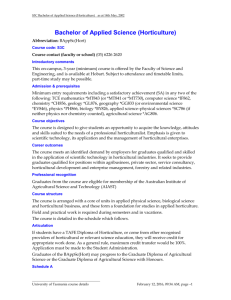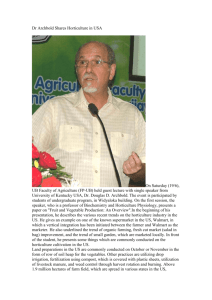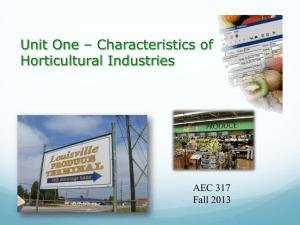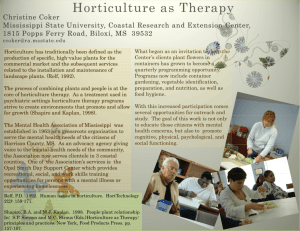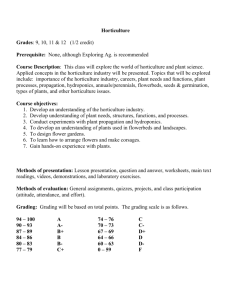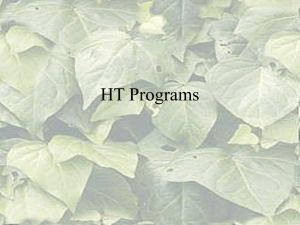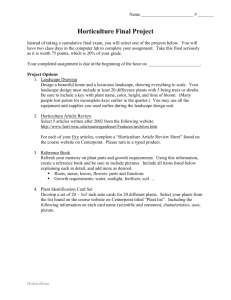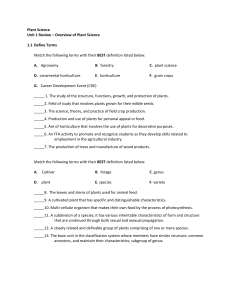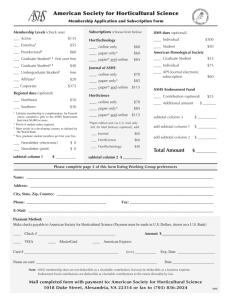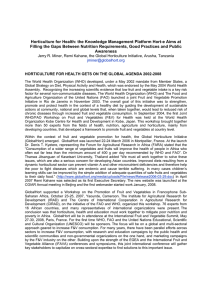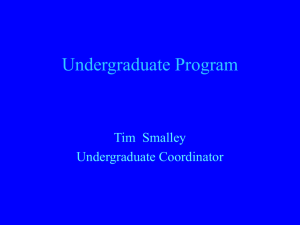Prairie Horticulture Certificate Program
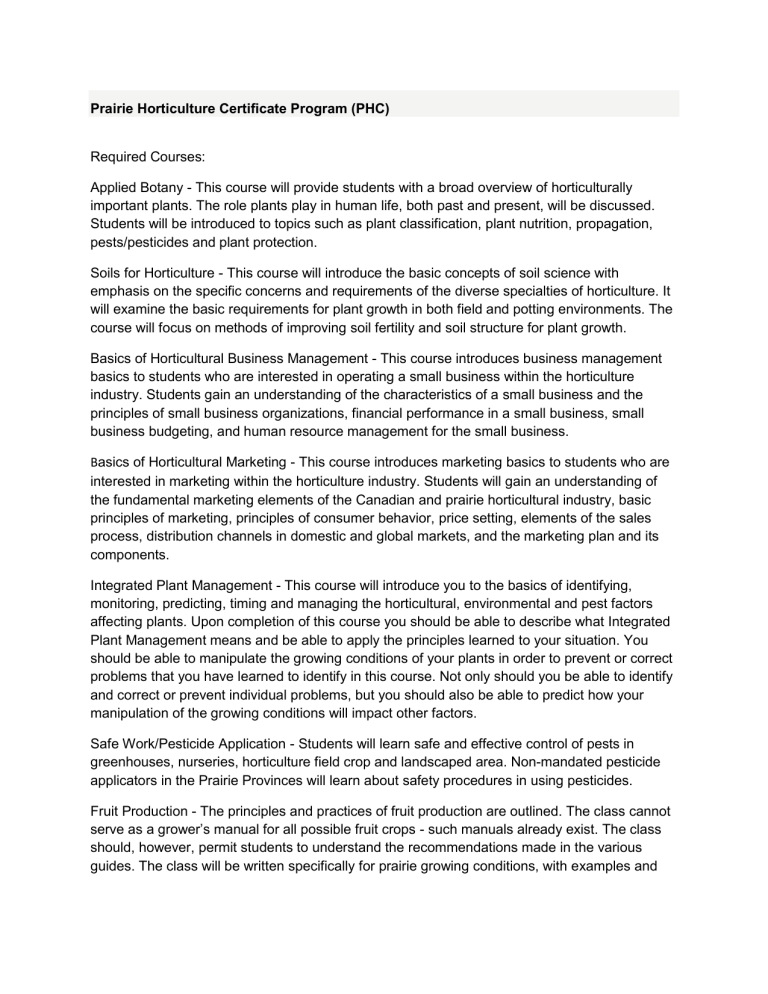
Prairie Horticulture Certificate Program (PHC)
Required Courses:
Applied Botany - This course will provide students with a broad overview of horticulturally important plants. The role plants play in human life, both past and present, will be discussed.
Students will be introduced to topics such as plant classification, plant nutrition, propagation, pests/pesticides and plant protection.
Soils for Horticulture - This course will introduce the basic concepts of soil science with emphasis on the specific concerns and requirements of the diverse specialties of horticulture. It will examine the basic requirements for plant growth in both field and potting environments. The course will focus on methods of improving soil fertility and soil structure for plant growth.
Basics of Horticultural Business Management - This course introduces business management basics to students who are interested in operating a small business within the horticulture industry. Students gain an understanding of the characteristics of a small business and the principles of small business organizations, financial performance in a small business, small business budgeting, and human resource management for the small business.
B asics of Horticultural Marketing - This course introduces marketing basics to students who are interested in marketing within the horticulture industry. Students will gain an understanding of the fundamental marketing elements of the Canadian and prairie horticultural industry, basic principles of marketing, principles of consumer behavior, price setting, elements of the sales process, distribution channels in domestic and global markets, and the marketing plan and its components.
Integrated Plant Management - This course will introduce you to the basics of identifying, monitoring, predicting, timing and managing the horticultural, environmental and pest factors affecting plants. Upon completion of this course you should be able to describe what Integrated
Plant Management means and be able to apply the principles learned to your situation. You should be able to manipulate the growing conditions of your plants in order to prevent or correct problems that you have learned to identify in this course. Not only should you be able to identify and correct or prevent individual problems, but you should also be able to predict how your manipulation of the growing conditions will impact other factors.
Safe Work/Pesticide Application - Students will learn safe and effective control of pests in greenhouses, nurseries, horticulture field crop and landscaped area. Non-mandated pesticide applicators in the Prairie Provinces will learn about safety procedures in using pesticides.
Fruit Production - The principles and practices of fruit production are outlined. The class cannot serve as a g rower’s manual for all possible fruit crops - such manuals already exist. The class should, however, permit students to understand the recommendations made in the various guides. The class will be written specifically for prairie growing conditions, with examples and
illustrations drawn from familiar prairie situations. In rare cases, non-prairie examples may be used to illustrate particular points.
Propagation - Principals and practices for propagating horticultural plants.
Vegetable Crop Production - Vegetable crop production in the Canadian prairies will be studied from the point of view of soils, climate, equipment, management and marketing. Topics include establishing a vegetable enterprise, managing an existing operation and advising others on vegetable production.
